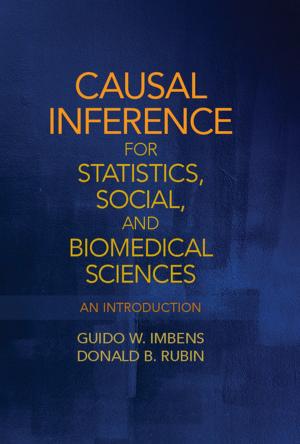Justice at a Distance
Extending Freedom Globally
Nonfiction, Religion & Spirituality, Philosophy, Political, Reference & Language, Law| Author: | Loren E. Lomasky, Fernando R. Tesón | ISBN: | 9781316404065 |
| Publisher: | Cambridge University Press | Publication: | September 29, 2015 |
| Imprint: | Cambridge University Press | Language: | English |
| Author: | Loren E. Lomasky, Fernando R. Tesón |
| ISBN: | 9781316404065 |
| Publisher: | Cambridge University Press |
| Publication: | September 29, 2015 |
| Imprint: | Cambridge University Press |
| Language: | English |
The current global-justice literature starts from the premise that world poverty is the result of structural injustice mostly attributable to past and present actions of governments and citizens of rich countries. As a result, that literature recommends vast coercive transfers of wealth from rich to poor societies, alongside stronger national and international governance. Justice at a Distance, in contrast, argues that global injustice is largely home-grown and that these native restrictions to freedom lie at the root of poverty and stagnation. The book is the first philosophical work to emphasize free markets in goods, services, and labor as an ethical imperative that allows people to pursue their projects and as the one institutional arrangement capable of alleviating poverty. Supported by a robust economic literature, Justice at a Distance applies the principle of noninterference to the issues of wealth and poverty, immigration, trade, the status of nation-states, war, and aid.
The current global-justice literature starts from the premise that world poverty is the result of structural injustice mostly attributable to past and present actions of governments and citizens of rich countries. As a result, that literature recommends vast coercive transfers of wealth from rich to poor societies, alongside stronger national and international governance. Justice at a Distance, in contrast, argues that global injustice is largely home-grown and that these native restrictions to freedom lie at the root of poverty and stagnation. The book is the first philosophical work to emphasize free markets in goods, services, and labor as an ethical imperative that allows people to pursue their projects and as the one institutional arrangement capable of alleviating poverty. Supported by a robust economic literature, Justice at a Distance applies the principle of noninterference to the issues of wealth and poverty, immigration, trade, the status of nation-states, war, and aid.















